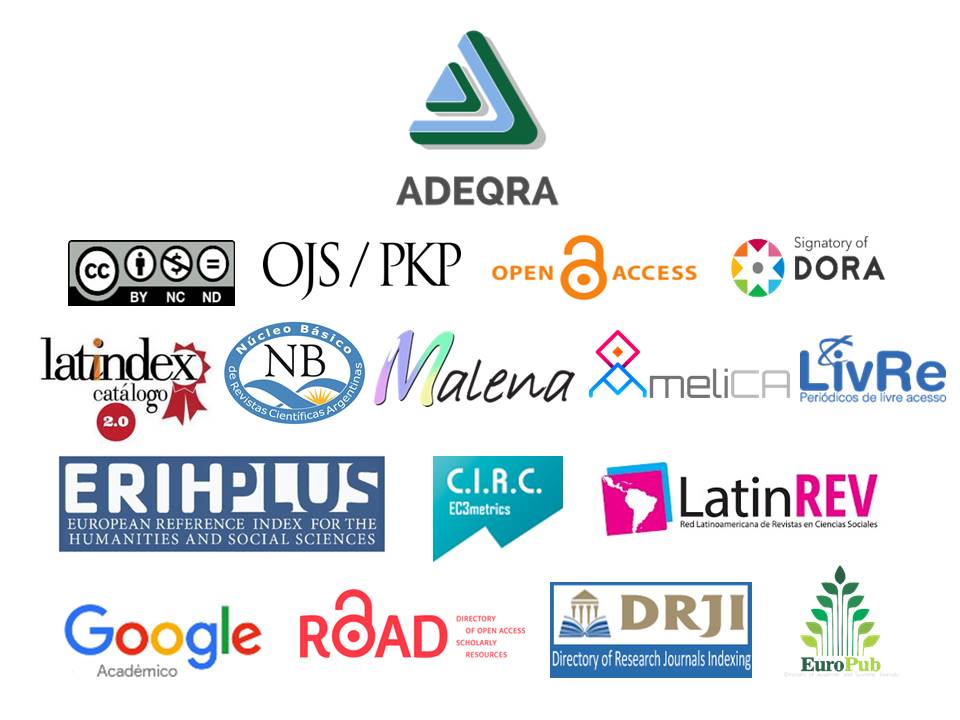A remote teaching classroom proposal about scientific and pseudoscientific dissemination in timen of Covid-19
Keywords:
didactic proposal in Chemistry, scientific and pseudoscientific dissemination, use of scientific knowledge in a health context, remote teachingAbstract
The Covid-19 health emergency produced the disclosure of pseudoscientific information. From the educational field, it is possible to contribute to promote a critical analysis of that information taking as a starting point the development of general and scientific capacities. This paper describes a proposal implemented virtually with high school students with the objective of analyzing the impact of these disclosures and their link to health care. The students analyzed a viralized message in the networks from their previous knowledge and from new information provided. Later they gave their opinion on the social impact of accepting false information and on how to proceed with it. The classroom proposal favoured the development of some capacities since students questioned information from various sources, establishing relationships between the contents addressed and health care. In addition, they recognized the characteristics of scientific communications and its contribution to its critical analysis
References
Anijovich, R., Artopoulos, A., Furman, M. y Tarasow, F. [Tramar Ed] (9 de junio de 2020). Pedagogía en tiempos de pandemia [Archivo de video]. https://www.youtube.com/watch?v=2fUZoMeu124&feature=youtu.be
Candón Gautier, L. (2019). Las fake news como recurso para desarrollar la competencia digital: una proyección didáctica para un aula de 4o de ESO. Tesis de Maestría. Universidad de Jaén. España.
Cañas, A. y Martín Díaz, M. J. (2010). ¿Puede la competencia científica acercar la Ciencia a los intereses del alumnado? Alambique: Didáctica de las Ciencias Experimentales, (66), 80-87.
Labate, H. (2016). Hacia el desarrollo de capacidades, publicación interna. Buenos Aires: Ministerio de Educación y Deportes de la Nación.
Ministerio de Educación de la provincia de San Juan (2020). Resolución 631-ME-20.
Organización Mundial de la Salud (2020). Resolución WHA73.1.
Perdomo, B. (2008). Búsqueda y selección de textos en la internet para investigación científica. SABER. Revista Multidisciplinaria del Consejo de Investigación de la Universidad de Oriente, 20(1),109-116.
Roegiers, X. (2016). Marco conceptual para la evaluación de las competencias. UNESCO. OIE. http://www.ibe.unesco.org/sites/default/les/resources/ipr4-roegiers-competenciesassessment
Espin, E. (2020). Los tratamientos pseudocientíficos en la Pandemia Covid- 19: Aplanar la curva de Infodemia también salva vidas. Revista Bionatura, 6(3), 1181-1182.
http://www.revistabionatura.com/2021.06.03.2.php
Sanvicén Torné, P. y Molina Luque, F. (2015). Efectos del uso de internet como fuente principal de información. Evidencias en estudiantes de primer curso universitario. Prisma Social, (15), 352-386.
Roldan, O. (2003). Guía para la elaboración de un programa de estudio en educación a distancia. México: Universidad Nacional Autónoma de México.
Tobón Tobón, S., Pimienta Prieto, J. y García Fraile, J. (2010). Secuencias didácticas: aprendizaje y evaluación de competencias. México: Pearson Educación.
Published
How to Cite
Issue
Section
License
Copyright (c) 2022 Laura Morales, María José Flores, Raúl Pereira

This work is licensed under a Creative Commons Attribution-NonCommercial-NoDerivatives 4.0 International License.



